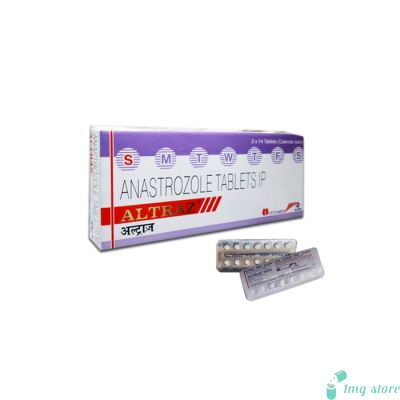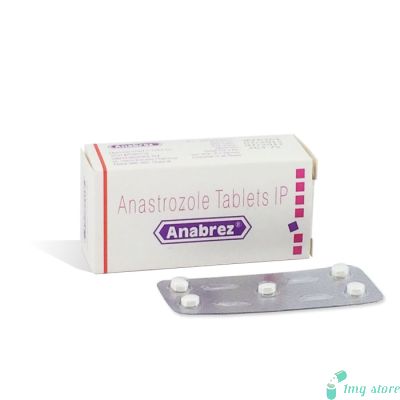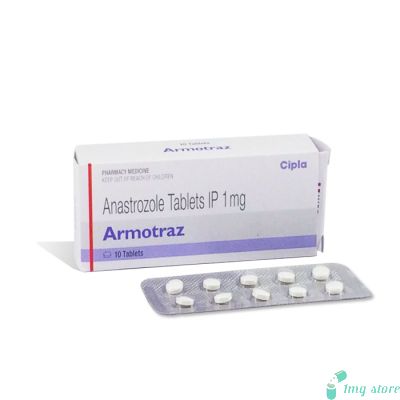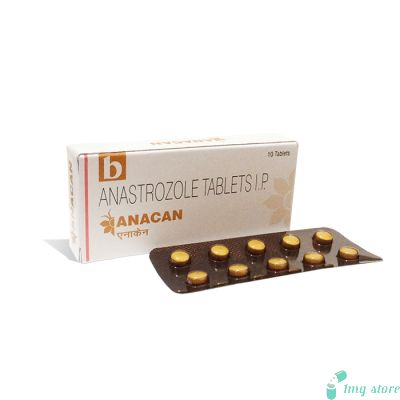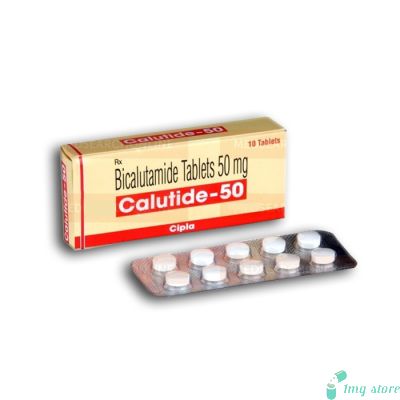Belustine Capsule (Lomustine)
Lomustine, commonly known by its brand name Ceenu, is an oral chemotherapy drug used in the treatment of various types of cancer. It belongs to the class of alkylating agents and works by interfering with the growth and spread of cancer cells in the body.
What is Belustine Capsule (Lomustine)?
Lomustine, commonly known by its brand name Ceenu, is an oral chemotherapy drug used in the treatment of various types of cancer. It belongs to the class of alkylating agents and works by interfering with the growth and spread of cancer cells in the body. Lomustine is available in capsule form and is typically prescribed by oncologists for specific cancer types. This article provides an in-depth understanding of Lomustine, including dosage information, uses, and its benefits in cancer treatment.
Dosage Information:
The dosage of Lomustine varies depending on several factors, including the patient's age, body weight, overall health, and the type of cancer being treated. It is crucial to follow the prescribing doctor's instructions and never self-adjust the dosage. Lomustine capsules are usually taken orally, with or without food. The recommended frequency of dosage can range from once every six weeks to once every eight weeks.
The typical starting dose of Lomustine for adults is 130 mg/m² of body surface area, which is calculated based on height and weight. This dose is often administered as a single dose, and the treatment cycles are repeated at specific intervals. The dosing schedule may vary based on the type and stage of cancer, as well as the patient's response to the treatment. It is essential to strictly adhere to the prescribed dosage and schedule for optimal results. For patients with impaired liver or kidney function, a dose adjustment may be necessary to prevent potential toxicity. It is important to inform the treating physician about any pre-existing liver or kidney conditions to ensure the appropriate dosage is administered.
Benefits of Lomustine:
- Lomustine offers several advantages as a chemotherapy drug. Its oral formulation allows for convenient administration, eliminating the need for frequent hospital visits. This feature is particularly beneficial for patients who prefer to receive treatment in the comfort of their homes.
- Furthermore, Lomustine's alkylating properties make it effective against a broad range of cancer types. It has demonstrated significant activity against various solid tumors and hematological malignancies, making it a versatile option in the oncology setting.
- Lomustine's ability to cross the blood-brain barrier makes it particularly valuable in the treatment of brain tumors, where surgical resection alone may not be sufficient. It can target cancer cells within the central nervous system, providing an additional therapeutic option for patients with brain malignancies.
- It is important to remember that the benefits of Lomustine as a Life-Saving drug often outweigh the potential risks and side effects. Your healthcare team will closely monitor your response to treatment and provide supportive care to manage any adverse effects. Open communication with your doctor is key to addressing any concerns and ensuring your well-being throughout the treatment process.
- In conclusion, Lomustine (Belustine) is a potent Anti-Cancer drug used to treat various malignancies. By taking necessary precautions, being aware of potential drug interactions, and promptly reporting any side effects, you can help safeguard your health and optimize the effectiveness of Lomustine in combating cancer. Always consult your healthcare provider for personalized advice and guidance throughout your treatment journey.
Conclusion:
Lomustine (Ceenu) is an oral chemotherapy drug commonly used in the treatment of different types of cancer, including brain tumors, lung cancer, Hodgkin's lymphoma, and multiple myeloma. By interfering with the growth and spread of cancer cells, Lomustine helps slow down disease progression and improve survival rates. It offers the benefits of oral administration, versatility across various cancer types, and the ability to cross the blood-brain barrier. As with any chemotherapy drug, it is essential to follow the prescribed dosage and consult with a healthcare professional for personalized treatment advice.
When using Lomustine (Belustine), it is crucial to take certain precautions to ensure your safety and optimize treatment outcomes. Here are some important precautions to consider:
Medical History: Inform your healthcare provider about your complete medical history, including any pre-existing conditions, such as liver or kidney disease, lung disease, or a history of blood disorders. This information will help the doctor determine if Lomustine is suitable for you and whether any dose adjustments are necessary.
Pregnancy and Breastfeeding: Lomustine/CeeNU may cause harm to a developing fetus, so it is essential to avoid becoming pregnant while using this medication. If you are pregnant or planning to conceive, discuss alternative treatment options with your healthcare provider. Additionally, Lomustine can pass into breast milk and may harm a nursing baby. Therefore, breastfeeding should be avoided during treatment.
Contraception: Lomustine can cause birth defects, so effective contraception should be used during treatment and for a certain period after discontinuing the drug. Consult your doctor for appropriate contraceptive methods.
Blood Counts: Lomustine can affect the bone marrow and lead to decreased blood cell production. Regular blood tests will be required to monitor your blood counts, including red blood cells, white blood cells, and platelets. If you experience symptoms such as unusual bleeding, bruising, or persistent infections, inform your doctor immediately.
Vaccinations: It is generally recommended to avoid live vaccines while receiving Lomustine, as they may pose a risk of infection. Consult your healthcare provider regarding appropriate vaccination schedules and options.
Lomustine has proven effective in the treatment of various cancers, including brain tumors, lung cancer, Hodgkin's lymphoma, and multiple myeloma. It is commonly used as a component of combination chemotherapy regimens for these conditions. Lomustine can be used as a primary treatment or as part of a multimodal approach, which may include surgery, radiation therapy, or immunotherapy.
Brain Tumors: Lomustine is widely used in the management of primary malignant brain tumors, such as glioblastoma multiforme and anaplastic astrocytoma. It has demonstrated efficacy in delaying disease progression and prolonging survival in these cases.
Lung Cancer: Lomustine/CeeNU may be prescribed for patients with non-small cell lung cancer who have not responded to other treatments. It is often used in combination with other chemotherapy agents to enhance the overall response rate.
Hodgkin's Lymphoma: Lomustine can be incorporated into chemotherapy regimens for the treatment of refractory or relapsed Hodgkin's lymphoma. It may be administered as part of salvage therapy or in conjunction with other agents.
Multiple Myeloma: Lomustine is occasionally used in the treatment of multiple myeloma, particularly in cases that have not responded to standard therapies. Its inclusion in combination regimens can help improve outcomes for patients with advanced multiple myeloma.
Like any anti-cancer medication, Lomustine can cause side effects. While not everyone experiences these side effects, it is important to be aware of them and promptly report any unusual symptoms to your healthcare provider. Common side effects of Lomustine include:
Bone Marrow Suppression: Lomustine can affect the bone marrow's ability to produce blood cells, leading to an increased risk of anemia, infection, and bleeding. Regular blood tests are necessary to monitor blood counts.
Gastrointestinal Effects: Lomustine/CeeNU may cause nausea, vomiting, diarrhea, and loss of appetite. Your doctor may prescribe medications to manage these symptoms. It is important to stay hydrated and maintain adequate nutrition during treatment.
Liver Toxicity: Lomustine can cause liver damage, leading to elevated liver enzymes and jaundice. Regular liver function tests are essential to monitor liver health during treatment.
Pulmonary Toxicity: In rare cases, Lomustine can cause lung damage, resulting in symptoms such as cough, shortness of breath, and fever. Inform your doctor immediately if you experience any respiratory symptoms.
Hair Loss: Lomustine can cause temporary hair loss. Hair typically regrows after treatment ends, but it may be of a different texture or color.
Fatigue: Many patients experience fatigue or weakness while undergoing chemotherapy. It is important to get adequate rest and conserve energy during this time.
Allergic Reactions: Although rare, some individuals may experience allergic reactions to Lomustine. Seek immediate medical attention if you develop symptoms such as rash, itching, swelling, or difficulty breathing.
Can I take Lomustine with other medications?
It is essential to inform your healthcare provider about all the medications you are taking, including prescription drugs, over-the-counter medicines, and herbal supplements. Lomustine may interact with certain medications, affecting their efficacy or increasing the risk of side effects. Your doctor will carefully evaluate potential drug interactions and adjust your treatment plan accordingly.
How long will I need to take Lomustine?
The duration of Lomustine treatment can vary depending on the type and stage of cancer, as well as individual patient factors. Treatment courses are typically planned in cycles, with rest periods in between. Your doctor will determine the optimal treatment duration based on your response to therapy and ongoing assessment of the cancer's status.
Can Lomustine cure my cancer?
Lomustine/CeeNU is a potent anti-cancer drug that has shown effectiveness in treating various malignancies. However, the response to treatment can vary among individuals, and the possibility of complete cure depends on several factors, including the type and stage of cancer, overall health, and response to therapy. Your doctor will provide a realistic assessment of the treatment goals and outcomes based on your specific situation.
What should I do if I miss a dose of Lomustine?
If you accidentally miss a dose of Lomustine, contact your healthcare provider immediately for guidance. It is crucial to adhere to the prescribed dosing schedule to ensure the optimal benefits of the medication. Your doctor may advise on whether to take the missed dose or adjust the treatment plan accordingly.
Are there any long-term side effects of Lomustine?
Lomustine can have both immediate and long-term side effects. While some side effects may resolve after treatment, others may persist or develop later. Long-term side effects can include secondary cancers, infertility, or damage to certain organs. Regular follow-up appointments with your doctor are important to monitor your health, address any concerns, and manage any potential long-term effects of Lomustine treatment.
Lomustine may interact with other medications, potentially altering their effectiveness or increasing the risk of side effects. Inform your doctor about all the medications, including prescription drugs, over-the-counter medicines, and herbal supplements, that you are currently taking. Here are some notable drug interactions:
Vaccines: Lomustine may weaken the immune system, so live vaccines should be avoided. Examples of live vaccines include measles, mumps, rubella (MMR), varicella (chickenpox), and yellow fever vaccines.
Allopurinol: Concurrent use of Lomustine and allopurinol (a medication used to treat high uric acid levels) may increase the risk of bone marrow suppression. Close monitoring of blood counts is essential in such cases.
Other Chemotherapy Drugs: Using Lomustine/CeeNU in combination with other chemotherapy drugs may increase the risk of adverse effects. Your doctor will carefully evaluate potential drug interactions when designing your treatment plan.
Phenobarbital and Phenytoin: These medications, commonly used to treat seizures, may reduce the effectiveness of Lomustine. Your doctor may adjust the dosage of Lomustine or consider alternative treatments if necessary.
Metabolism-Modifying Drugs: Medications that affect liver enzymes, such as cimetidine, phenytoin, and phenobarbital, can alter the metabolism of Lomustine. This may lead to increased toxicity or reduced efficacy. Close monitoring is essential when using these drugs concomitantly.
| Manufacturer | : | Mediclone Health Care Pvt Ltd |
| Equivalent Brand | : | CeeNU |
| Generic Search | : | Lomustine |










